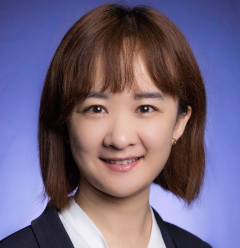
主 题:政府政策与女性规范:来自90年代中国城市国企改革的证据
主讲人:左雪静 复旦大学经济学院助理教授
主持人:周晔馨 北京师范大学经济与资源管理研究院副教授
时 间:(星期五)16:00—17:30
地 点: 励教楼C305(北师大珠海校区)
主讲人介绍
左雪静,复旦大学经济学院助理教授,2018年获得休斯顿大学经济学博士学位。主要研究领域为性别平等,劳动经济学和实验经济学。研究成果发表于《美国国家科学院院刊》(Proceedings the National Academy of Sciences of the United States of America, 2019) 以及《经济学与统计学评论》(the Review of Economics and Statistics, accepted)。

内容提要
Can government policy change traditional gender-biased culture? Between 1950s and 1990s, gender equality in labor market outcomes was enforced through the central planning labor arrangement in urban China with one of goals to change the traditional attitude toward women. To evaluate whether this over 40-year long government intervention successfully eliminate the influence of traditional gender norms, I first examine the effect of the national State-owned enterprise (SOE) reform from 1996 to 2001 on gender inequality in labor market outcomes. The results from both the difference-in-differences and instrumental variable strategies suggest that the SOE reform negatively affected women's labor market outcomes substantially more than men's outcomes. Next, I find that increased gender employment gap is driven by relatively old (between age 40 and 54) and lower educated (less than high school) women who are from lower income household. Moreover, only limited increased gender wage gap can be explained by economic reasons. To explore whether the response to the SOE reform varied by historical gender norms, I first use sex ratio at birth, a revealed preference for son, as a proxy and I find that widening gender gaps are mostly driven by the areas with high sex ratio. Additionally, I use the number of genealogy collected at the county level to proxy historical Confucianism, a dominant culture valued women less than men in China, and I find the similar results with using the contemporary sex ratio at birth as a proxy. These results are consistent with the persistence of traditional gender norms.

